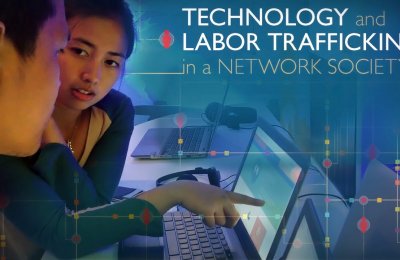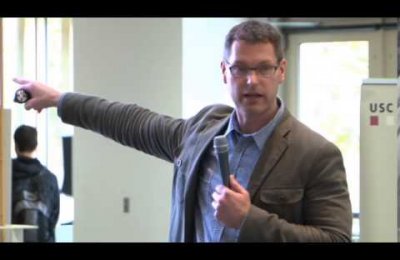By Alex Reed
Student Writer
The new semester is well on its way, bringing with it a new series of Annenberg Research Seminars. Two Mondays a month, USC Annenberg hosts lunchtime talks on different communication-related research topics.
Research Seminar Coordinator and USC Annenberg Professor Peter Monge started the seminars around seven years ago, looking to “systematically bring in a wide variety of people that appeal across the board.”
Past seminars have included USC Annenberg Professor Sarah Banet-Weiser, who discussed her book on authenticity and branding, and Tim Berners-Lee, who is referred to by many as the father of the Internet. Topics include everything from humanities, social sciences, cultural studies and even film production.
“The seminars are very divergent in content and cover a wide spectrum of intellectual interests across the entire field of communications,” Monge said.
The wide array of speakers is a reflection of the diverse interests of USC Annenberg’s faculty and students.
The series kicked off Monday, Sept. 9, with René Weber of the University of California, Santa Barbara. He discussed the potential outcomes of introducing neuroscientific approaches to communication research, and in turn, the discipline that communication can bring to neuroscience.
Weber said he chose USC Annenberg as the venue to present his findings because of its vast resources, as well as its openness to crossing disciplines and finding new methods within the field.
“Tell me another school where there is so much going on,” said Weber. “It’s the perfect place to do this.”
USC Annenberg Assistant Professor of Public Relations Aimei Yang will speak Sept. 23, sharing the findings of two recent studies that looked at trends in global public relations.
On Oct. 21, USC Annenberg will welcome Robert McChesney of the University of Illinois at Urbana-Champaign, and John Nichols, author and correspondent for The Nation and Capital Times. They will discuss money and news media in relation to American politics and electoral democracy. Copies of their co-written book "Dollarocracy" as well as McChesney’s book "Digital Disconnect" will be available for purchase at the event.
Joseph Turrow of the University of Pennsylvania Annenberg School for Communication will speak Oct. 28 about the changing modes of communication in retail and how the digitization of business for physical shopping spaces is problematic.
On Nov. 28th, Shane Greenstein of Northwestern University’s Kellogg School of Management will discuss the growing use of Wikipedia and its basis in collective intelligence. He will present findings that reveal the limits on collective intelligence, particularly with subjective and controversial cases such as a politics.
“We are trying to bring in the leading research scholars in communications, learn more about the work they are doing and have them interact with faculty and graduate students who are interested in their work,” said Monge.
Monge tries to expose his students to the seminar speakers and their unique work as much as possible. After many of the seminars, Monge will bring graduate students to lunch with the speakers. Often times, the outcome can be “joint research projects” and “other kinds of collaborations that are beneficial for everybody.”
“They love it,” said Monge. “Who wouldn’t? That’s why we do it -- I like it too.”









